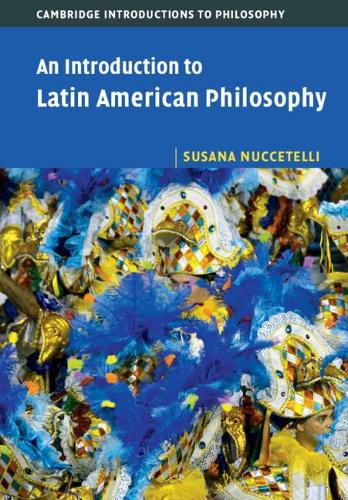Readings Newsletter
Become a Readings Member to make your shopping experience even easier.
Sign in or sign up for free!
You’re not far away from qualifying for FREE standard shipping within Australia
You’ve qualified for FREE standard shipping within Australia
The cart is loading…






Latin American philosophy is best understood as a type of applied philosophy devoted to issues related to the culture and politics of Latin America. This introduction provides a comprehensive overview of its central topics. It explores not only the unique insights offered by Latin American thinkers into the traditional pre-established fields of Western philosophy, but also the many ‘isms’ developed as a direct result of Latin American thought. Many concern matters of practical ethics and social and political philosophy, such as Lascasianism, Arielism, Bolivarism, modest and immodest feminisms, republicanism, positivism, Marxism, and liberationism. But there are also meta-philosophical ‘isms’ such as originalism and perspectivism. Together with clear and accessible discussions of the major issues and arguments, the book offers helpful summaries, suggestions for further reading, and a glossary of terms. It will be valuable for all readers wanting to explore the richness and diversity of Latin American philosophy.
$9.00 standard shipping within Australia
FREE standard shipping within Australia for orders over $100.00
Express & International shipping calculated at checkout
Latin American philosophy is best understood as a type of applied philosophy devoted to issues related to the culture and politics of Latin America. This introduction provides a comprehensive overview of its central topics. It explores not only the unique insights offered by Latin American thinkers into the traditional pre-established fields of Western philosophy, but also the many ‘isms’ developed as a direct result of Latin American thought. Many concern matters of practical ethics and social and political philosophy, such as Lascasianism, Arielism, Bolivarism, modest and immodest feminisms, republicanism, positivism, Marxism, and liberationism. But there are also meta-philosophical ‘isms’ such as originalism and perspectivism. Together with clear and accessible discussions of the major issues and arguments, the book offers helpful summaries, suggestions for further reading, and a glossary of terms. It will be valuable for all readers wanting to explore the richness and diversity of Latin American philosophy.